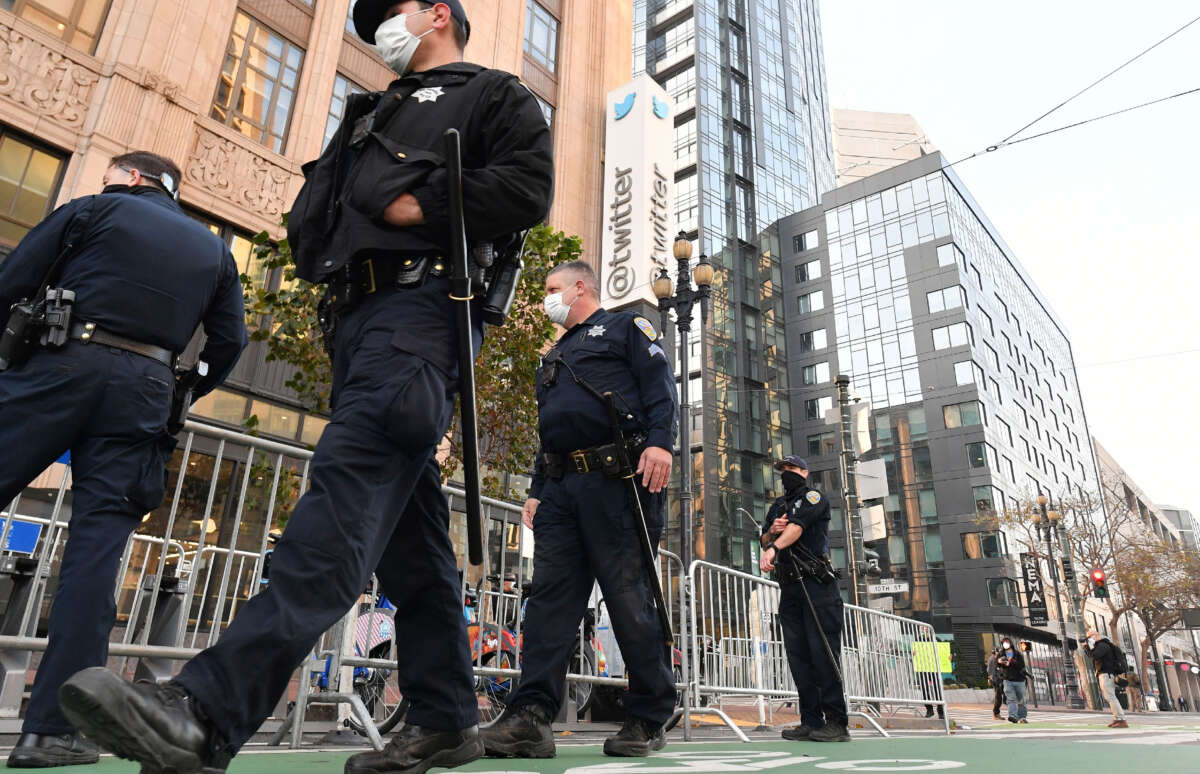Following massive public outcry, the San Francisco Board of Supervisors voted on Tuesday not to move forward with a policy that would have allowed the city’s police department to use robots rigged with explosives against suspects in certain circumstances.
The board had previously voted in favor of the policy, passing a resolution last week that granted the San Francisco Police Department (SFPD) the authority to use such robots by a vote of 8-3. But after several groups and members of the community voiced their opposition, the board — which would have had to pass a second resolution to push the matter forward for consideration by Mayor London Breed — opted instead to table the policy, ensuring that the SFPD remains barred from using robots to kill suspects for the time being.
The board voted 8-3 in Tuesday night’s vote, mirroring its original vote in favor of the policy.
The new vote sends the policy proposal to a rules committee, which will reexamine the matter. If the policy is passed by members of that committee, it’s possible that it will be granted consideration in the future.
Although the matter may be revisited, opponents of the policy celebrated the Tuesday night vote, noting that the use of such robots would be a militaristic expansion of state power that would particularly endanger marginalized communities.
San Francisco police officers have shot and killed at least 58 people since 2000. Around 30 percent of the people killed by police were Black, even though Black residents only comprise 5 percent of the city’s population.
“There have been more killings at the hands of police than any other year on record nationwide. We should be working on ways to decrease the use of force by local law enforcement, not giving them new tools to kill people,” said board member Dean Preston, who voted against the proposal both last week and on Tuesday.
Breed appears to be opposed to the policy, writing in a letter earlier this week that granting police the authority to use robots rigged with explosives against suspects “is not a public safety solution, as the department claims, but an expansion of police power that history and common sense demonstrates will endanger lives needlessly.”
The policy that was proposed last week would have allowed police officers to use robots — ordinarily used for reconnaissance missions or disabling bombs — in situations where they determined that the “risk of loss of life to members of the public or officers is imminent and officers cannot subdue the threat after using alternative force options or de-escalation tactics.”
Police have already used robots to kill suspects in other jurisdictions; in 2016, police officers in Dallas, Texas, rigged explosives onto a robot in order to kill a suspect that had allegedly ambushed and killed five officers.
It’s unclear whether any major city in the U.S. has given explicit authorization to their police departments to use robots for such purposes, however.
“In my knowledge, [San Francisco] would be the first city to take this step of passing a law authorizing killer robots,” Albert Fox Cahn, executive director of the Surveillance Technology Oversight Project, said to The Washington Post last week, prior to the Tuesday vote. Passing such a law would set a dangerous precedent, he added.
Angry, shocked, overwhelmed? Take action: Support independent media.
We’ve borne witness to a chaotic first few months in Trump’s presidency.
Over the last months, each executive order has delivered shock and bewilderment — a core part of a strategy to make the right-wing turn feel inevitable and overwhelming. But, as organizer Sandra Avalos implored us to remember in Truthout last November, “Together, we are more powerful than Trump.”
Indeed, the Trump administration is pushing through executive orders, but — as we’ve reported at Truthout — many are in legal limbo and face court challenges from unions and civil rights groups. Efforts to quash anti-racist teaching and DEI programs are stalled by education faculty, staff, and students refusing to comply. And communities across the country are coming together to raise the alarm on ICE raids, inform neighbors of their civil rights, and protect each other in moving shows of solidarity.
It will be a long fight ahead. And as nonprofit movement media, Truthout plans to be there documenting and uplifting resistance.
As we undertake this life-sustaining work, we appeal for your support. We have 7 days left in our fundraiser: Please, if you find value in what we do, join our community of sustainers by making a monthly or one-time gift.
